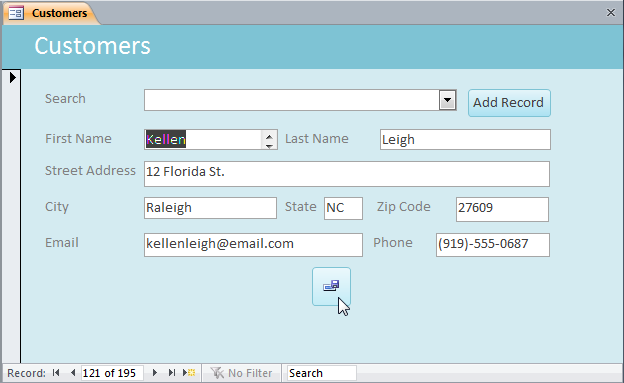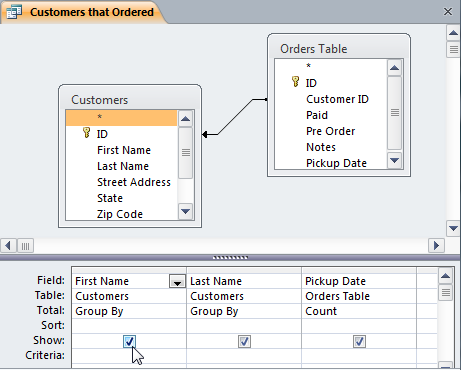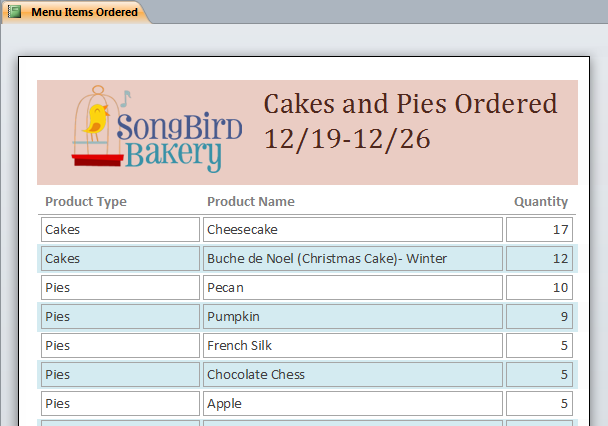Access 2010
Introduction to Objects
Forms, queries, and reports
Although tables store all of your data, the other three objects offer you ways to work with it: forms, queries, and reports. Each of these objects interacts with the records stored in your database's tables.
Forms
Forms are used for entering, modifying, and viewing records. You probably have had to fill out forms on many occasions, like when visiting a doctor's office, applying for a job, or registering for school. The reason forms are used so often is that they're an easy way to guide people into entering data correctly. When you enter information into a form in Access, that data goes exactly where the database designer wants it to go—into one or more related tables.
 A form
A formForms make entering data easier. Working with extensive tables can be confusing, and when you have connected tables you might need to work with more than one at a time to enter a set of data. However, with forms, it's possible to enter data into multiple tables at once, all in one place. Database designers can even set restrictions on individual form components to ensure all of the needed data is entered in the correct format. All in all, forms help keep data consistent and well-organized, which is essential for an accurate and powerful database.
Queries
Queries are a way of searching for and compiling data from one or more tables. Running a query is like asking a detailed question of your database. When you build a query in Access, you are defining specific search conditions to find exactly the data you want.
Queries are far more powerful than the simple searches you might carry out within a table. While a search would be able to help you find the name of one customer at your business, you could run a query to find the name and phone number of every customer who's made a purchase within the past week. A well-designed query can give information you might not be able to find out just by looking through the data in your tables.
 A query design
A query designReports
Reports offer you the ability to present your data in print. If you've ever received a computer printout of a class schedule or a printed invoice of a purchase, you've seen a database report. Reports are useful because they allow you to present components of your database in an easy-to-read format. You can even customize a report's appearance to make it visually appealing. Access offers you the ability to create a report from any table or query.
 A report
A report





